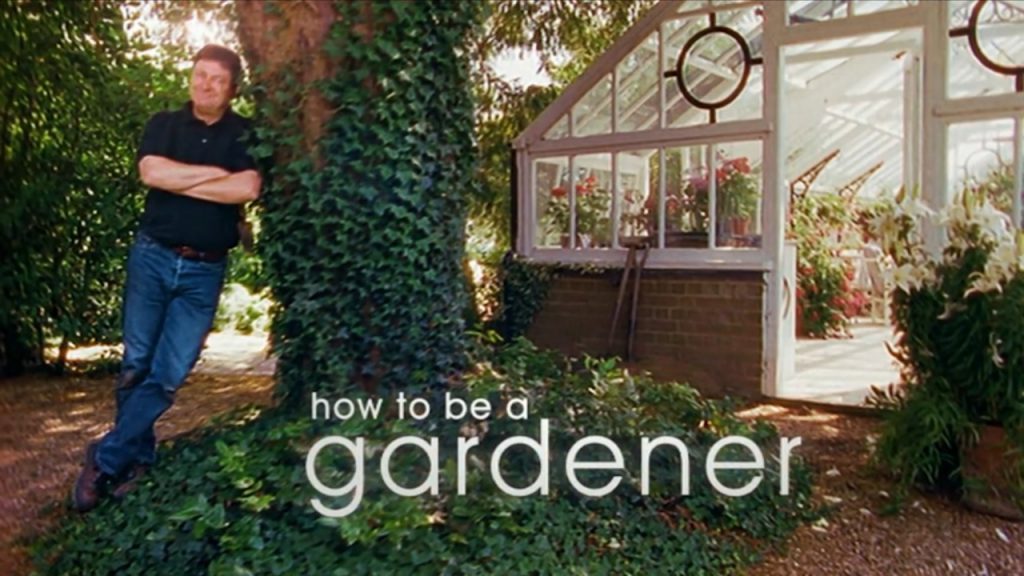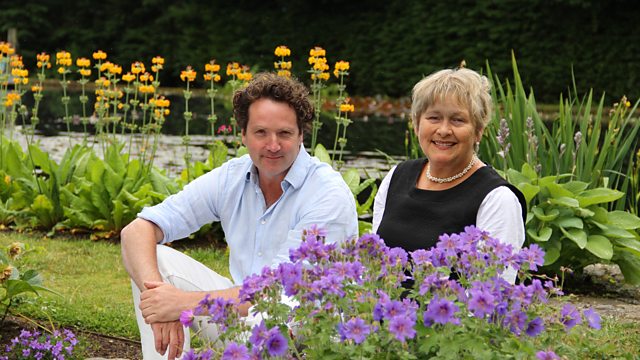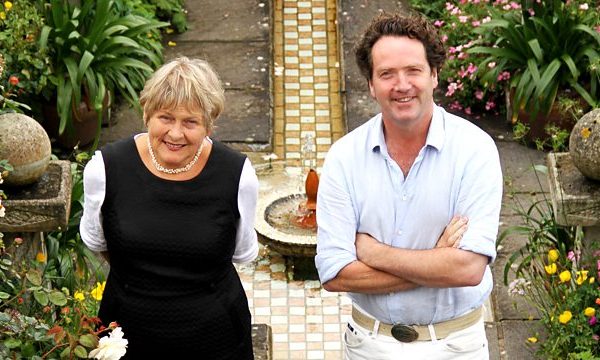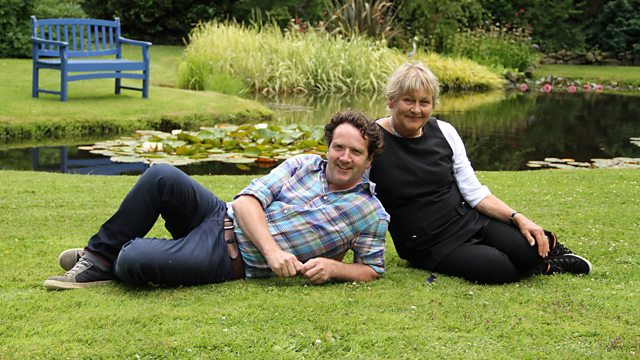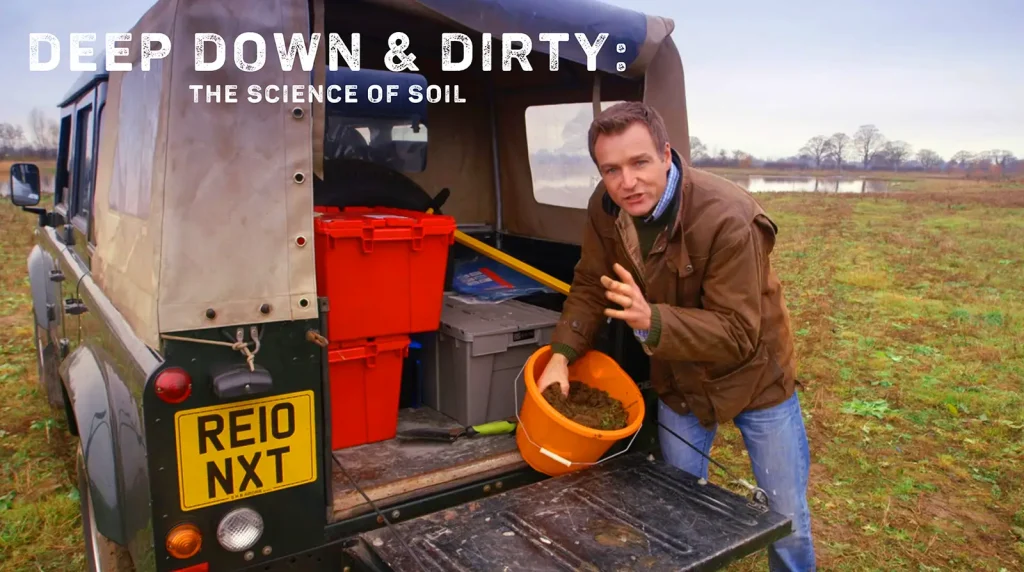How to Be a Gardener episode 5: Once your plants are growing you will need to keep them happy. How do you do this, and what sort of tools will you need? Plants need water and food, but when and in what sort of quantities? This module explains the cultivation techniques necessary to keep your plants in fine fettle. Don’t worry; you won’t have to be a slave to them, just a good mother. And when it comes to pruning don’t shake in your shoes. There are simple basic steps you can take to ensure you cut the right stem, at the right time, in the right place.
How to Be a Gardener is a BBC documentary series presented by gardener Alan Titchmarsh, providing a complete online guide gardening for beginners. Let’s face it, gardening can be pretty daunting. All those Latin names, the bugs and blights that can attack your plants just when they are looking their prettiest. How does anyone manage to grow anything? The series consists of eight 30-minute long episodes that cover everything you need to know to give you a great start in gardening.
How to Be a Gardener episode 5
Alan Fred Titchmarsh is an English gardener, broadcaster, poet, and novelist. After working as a professional gardener and a gardening journalist, he established himself as a media personality through appearances on gardening programmes. He has developed a diverse writing and broadcasting career.
Titchmarsh’s first few television appearances were on the long-running BBC television show Nationwide as a horticulture expert. This led to his being invited to present coverage of the Chelsea Flower Show for BBC television in 1983. Titchmarsh hosted this every year until 2013.
In 1996 the cancellation of Pebble Mill at One gave Titchmarsh the opportunity to move back towards his first love, gardening, and he took over as host of another long-running BBC television programme, Gardeners’ World in the same year, the show being filmed in his own garden. Titchmarsh has been married to Alison since 1975 and they have two children, Polly (born 1979) and Camilla (born 1981). In addition to his extensive television and writing work, Titchmarsh is also trustee of his own charity, ‘Gardens for Schools’, and others, including ‘Seeds for Africa’.
Being a gardener – How to Be a Gardener episode 5
Being a gardener can be a rewarding and fulfilling experience, but it takes a lot of work and dedication to be successful. Whether you’re a beginner or an experienced gardener, there are certain things that you need to do in order to be a successful gardener. In this essay, we will discuss the steps you need to take to become a gardener.
Planning and Preparation:
The first step to being a successful gardener is to plan and prepare. This means deciding what you want to grow, where you want to grow it, and how you will grow it. You need to consider factors such as the climate, soil type, and amount of sunlight that your garden will receive. Once you have a plan in place, you need to prepare the soil by removing any debris and adding compost or other organic matter. This will help to improve the soil quality and ensure that your plants have the best chance of thriving.
Caring for your Plants:
Once your garden is established, you need to take care of your plants. This includes watering them, fertilizing them, and pruning them. Watering is one of the most important things you can do for your plants. It is essential that you provide your plants with the right amount of water, as too much or too little can be harmful. Fertilizing your plants is also important, as it will help to provide them with the necessary nutrients they need to grow. Pruning is also important, as it helps to encourage healthy growth and remove any dead or diseased branches.
Another important aspect of being a gardener is pest control. You need to be aware of the common pests that can affect your plants, such as aphids, slugs, and caterpillars, and know how to deal with them. There are many ways to deal with pests, including using natural methods such as companion planting, using pesticides, and trapping.
Harvesting and Storing:
When it comes to harvesting your plants, it is essential that you do it at the right time. Most plants need to be harvested when they are fully ripe, as this is when they will have the most flavor and nutritional value. Once you have harvested your plants, you need to store them properly. This means keeping them in a cool and dry place, and ensuring that they are properly packaged.
Being a gardener takes a lot of work and dedication, but it can be a rewarding and fulfilling experience, this show How to Be a Gardener episode 3 is helping you with that. To be a successful gardener, you need to plan and prepare, take care of your plants, deal with pests, and harvest and store your plants properly. With the right approach and a lot of hard work, you can be a successful gardener and enjoy the fruits of your labor.
Planting plants
Planting plants is a rewarding and beneficial hobby that can be enjoyed by anyone. Not only can it beautify your home and community, but it can also provide a sense of accomplishment and improve mental and physical health.
Benefits of Planting Plants – How to Be a Gardener episode 5
- Improves Physical Health: Planting and maintaining a garden requires physical activity such as digging, planting, and pruning. This can help to improve cardiovascular health, increase muscle strength, and improve flexibility.
- Enhances Mental Health: The repetitive motions and focus required to care for a garden can provide a sense of calm and reduce stress. Additionally, the process of nurturing plants and watching them grow can provide a sense of accomplishment and satisfaction.
- Promotes Sustainable Living: Planting plants can also be an environmentally friendly hobby. It can help to combat air pollution, reduce carbon footprint, and promote biodiversity.
- Beauty enhancement: A well-maintained garden can enhance the aesthetic of a home or community and provide a pleasant environment for everyone to enjoy.
Choosing the Right Plants
- Climate: When choosing plants for your garden, it’s important to consider the climate in your area. Some plants may not be suitable for certain climates and may not survive.
- Soil: The soil type in your area should also be taken into consideration when choosing plants. Some plants may require well-drained soil while others may prefer wet soil.
- Space: Make sure to choose plants that will be appropriate for the space you have available. Some plants may require a lot of room to grow while others may be more compact.
- Purpose: Consider what you want your garden to accomplish, whether it’s to attract wildlife, provide privacy, or produce food.
